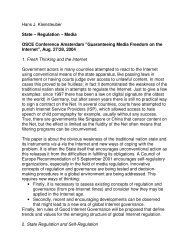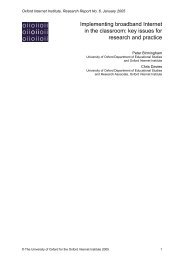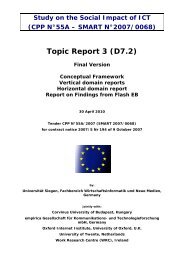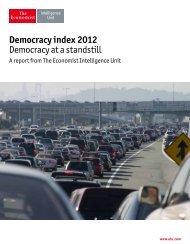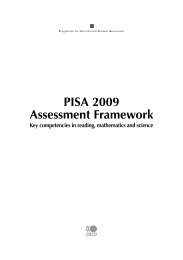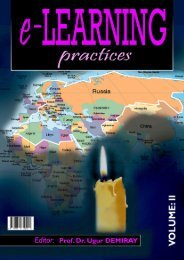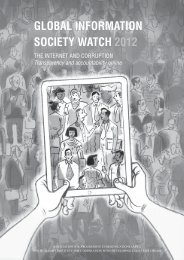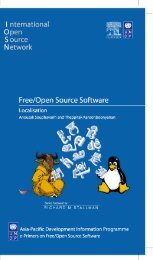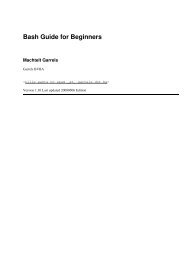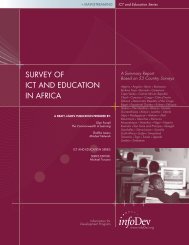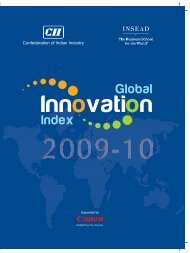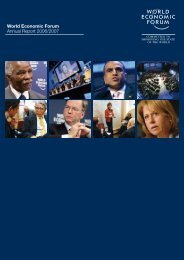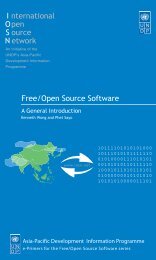Legal Aspects of the Information Society. - Free Technology Academy
Legal Aspects of the Information Society. - Free Technology Academy
Legal Aspects of the Information Society. - Free Technology Academy
Create successful ePaper yourself
Turn your PDF publications into a flip-book with our unique Google optimized e-Paper software.
GNUFDL • 7 Intellectual property: authors' rights and copyright<br />
1.4. Regulatory framework<br />
In this section, we will briefly review <strong>the</strong> main legal frameworks providing <strong>the</strong><br />
protection <strong>of</strong> Authors' rights, beginning with an international perspective and<br />
including European and national regulation.<br />
1.4.1. Authors' rights at international level<br />
The international framework for <strong>the</strong> protection <strong>of</strong> Authors' rights is made up<br />
<strong>of</strong> certain international treaties or conventions (treaties between countries mainly<br />
aimed at harmonising <strong>the</strong> legal regime) and certain international organisations,<br />
who monitor and develop new laws, among o<strong>the</strong>r functions. Let us start<br />
with <strong>the</strong> organisations.<br />
• Organisations.The most important source <strong>of</strong> regulation <strong>of</strong> Authors' rights<br />
at <strong>the</strong> international level is now <strong>the</strong> World Intellectual Property Organization<br />
(or WIPO). Created in 1967, WIPO is a specialised agency <strong>of</strong> <strong>the</strong> United<br />
Nations whose main purpose is to develop an international intellectual<br />
property system rewarding creativity, fostering innovation and contributing<br />
to economic development, while at <strong>the</strong> same time protecting public<br />
interests. As such, it sponsors international treaties to harmonise <strong>the</strong> legal<br />
framework and remove barriers to <strong>the</strong> exploitation <strong>of</strong> works.<br />
Ano<strong>the</strong>r international organisation interested in Authors' rights is <strong>the</strong><br />
World Trade Organization (known by its initials WTO), an international organisation<br />
in charge <strong>of</strong> <strong>the</strong> rules governing trade among countries. The<br />
WTO began to show interest in Authors' rights in <strong>the</strong> mid nineties, due<br />
to <strong>the</strong> growth in international trade in services and works susceptible <strong>of</strong><br />
copyright protection.<br />
• Treaties/Conventions. The first and foremost treaty on Authors' rights is<br />
<strong>the</strong> BerneConventionfor<strong>the</strong>Protection<strong>of</strong>LiteraryandArtisticWorks<br />
<strong>of</strong>1886, with its most recent revision having been drawn up in 1979.<br />
The Berne Convention is based on three main principles:<br />
– National treatment. Works originating in any <strong>of</strong> <strong>the</strong> contracting states<br />
must receive in each <strong>of</strong> <strong>the</strong> o<strong>the</strong>r contracting states <strong>the</strong> same protection<br />
as granted to <strong>the</strong> works <strong>of</strong> <strong>the</strong>ir own citizens.<br />
– Automatism and simplicity. Protection shall be automatic and shall<br />
not be subject to <strong>the</strong> compliance <strong>of</strong> any formality.<br />
– Moral rights. The Convention encompasses moral rights, i.e., <strong>the</strong> right<br />
for an author or his/her family to claim authorship <strong>of</strong> <strong>the</strong> work and<br />
to oppose any damage to its integrity.



